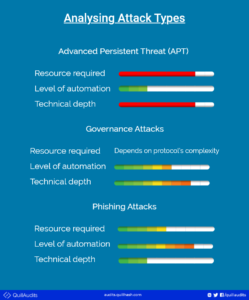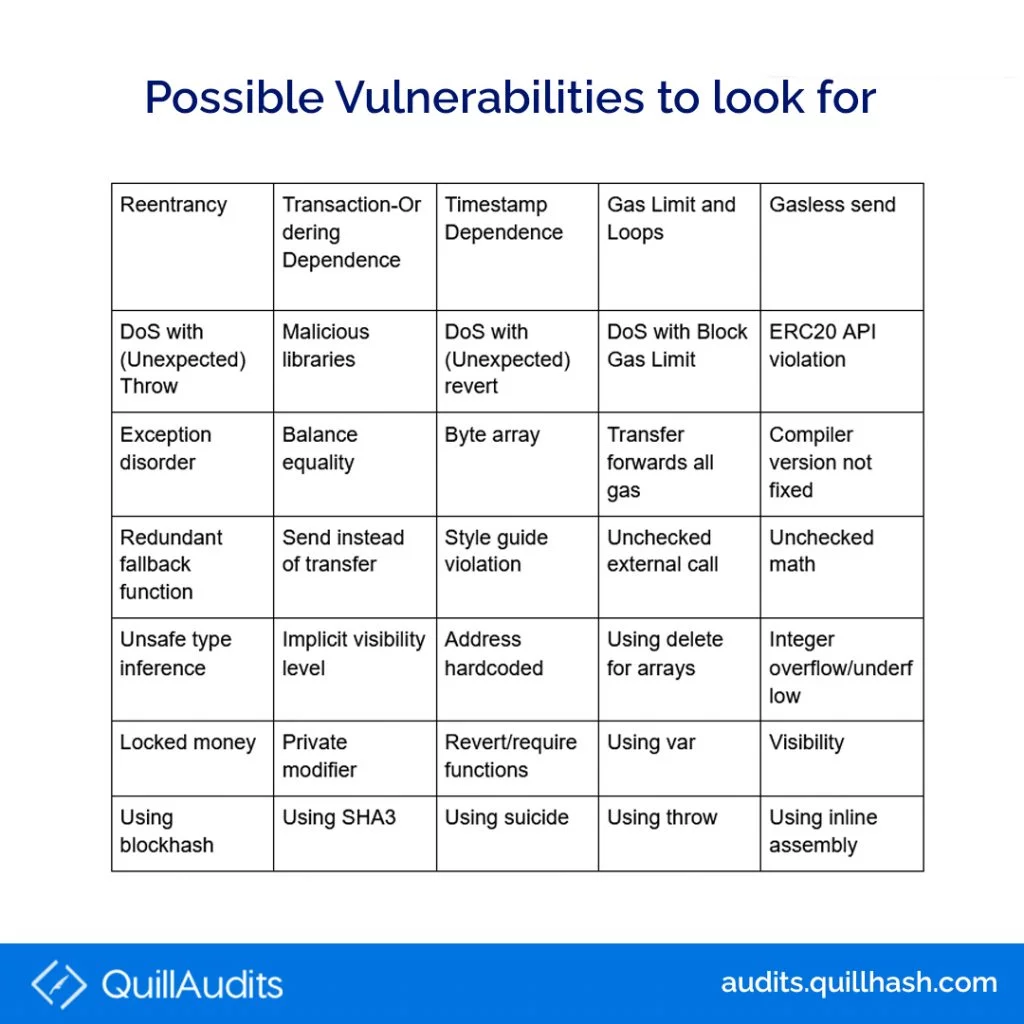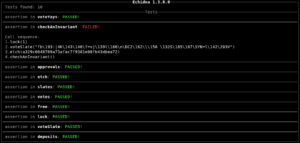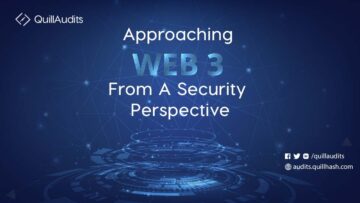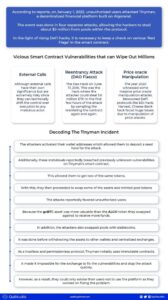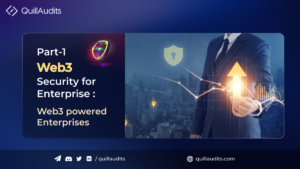Blockchain and cryptocurrencies within its ecosystem remain phenomenal breakthroughs that have influenced the growth of the creator economy, multichain industries, banking, and fintech sectors. In general, Blockchain has grown to over $4.9 billion, with experts predicting this growth to continue with a Compound Annual Growth Rate (CAGR) of 68.4% to reach $67.4 billion by 2026.
This growth, however, has brought with it numerous challenges, including an increase in fraud cases, regulatory uncertainties, consensus models, interoperability, and overall development of the technology. As a result, the Big four professional companies – Deloitte, Ernst & Young (EY), Price Waterhouse Cooper LLP (PwC) and KPMG are now becoming blockchain and crypto auditors to ensure a sense of direction, guidance, and responsibilities among participants.
Owing to the large client base and their influence in different industries, the four have become among the most active members of the blockchain revolution over the last couple of years.
Deloitte saga
Among the four, Deloitte was the first to engage in the cryptocurrency market back in 2014. Since then, the company has created the Rubix advisory services, set up the first blockchain lab in Dublin, built a hub in New York, and recently became part of the Ethereum Enterprise Alliance and Hyperledger Project. Deloitte also recently rolled out a new blockchain-based platform called Blockchain in a Box.
The platform provides users with blockchain demonstrations and experiments. Note that the platform is designed as a self-contained technology allowing users to test out Blockchain-based solutions across four small form factor compute nodes, network components, and three video displays.
PwC story
On the other hand, PwC accepted Bitcoin payments in 2017 but has moved to become arguably the most proactive among the four. The company has a training program created to boost its employee knowledge of Blockchain and its technologies.
PwC has also partnered up with private and public enterprises to facilitate the implementation of blockchain technology. It has also created Vulcan Digital Asset Services to promote digital assets across various industries. Finally, PwC has also formed 20 crypto teams comprising 200 people in over 350 countries.
KPMG role
KPMG has formed numerous partnerships with different entities within the global crypto communities. In addition, the company has studied cryptocurrencies publishing numerous reports on the subject. In 2020, KPMG was awarded a US patent for a blockchain application that increases trust in AI data management practices.
Must Read: 5 Ways to Ensure the Security of Your Crypto Exchange
EY move
In March 2019, EY launched a software solution called Crypto Asset Accounting and Tax (CAAT) for tax purposes. The software was created to help US customers file IRS tax returns related to cryptocurrencies. Months later, EY launched an open-source called the Code of Nightfall to transfer ERC-20 and ERC -721 tokens on the Ethereum blockchain. Other EY innovations include Baseline Protocol and Zero-Knowledge Proof technology.
Increasing role of blockchain code auditing
As the blockchain industry continues to grow, the role of auditing processes is becoming eminently clear. Auditing helps set standards for performance, compliance, and security. In addition, like regulatory guidelines, auditing helps build confidence within all stakeholders in the industry by providing transparency of operations.
Their current status in the industry has allowed the four to shed light on auditing for crypto and blockchain companies. For example, in 2018, PwC launched a blockchain audit service to encourage people to use Blockchain and cryptocurrencies. In particular, PwC updated its Halo auditing suite to accommodate enterprises engaging in crypto transactions. At the time, A. Michael Smith, a partner at PwC, explained that the auditing service would provide an independent validation that Blockchain as a technology is operating as intended.
Although cryptocurrencies were designed with a trustless ideology, the industry still needs trusted entities to help shape the overall ecosystem. Since 2019, PwC has been serving as auditors for BC Group, a publicly listed crypto company in Hong Kong.
EY arguably remains at the forefront of developing solutions for auditing cryptocurrencies. EY launched its Blockchain Analyzer aimed at offering services specifically to entities within the cryptocurrency sphere. The Blockchain Analyzer was recently updated and can be used for multiple purposes, including auditing, transaction monitoring, and taxation. The Blockchain facilitated EY audit teams in gathering transaction data and performing analysis of transactions.
The Big Four recently asked their employees to disclose their 2021 investment in cryptocurrencies. The directive was intended to allow the over 1600 partners in the Big Four firms to disclose their crypto investments, helping them remain accountable and compliant with the current regulations.
Conclusion
The importance of adapting to fit the growing technologies cannot be over-emphasized. The move of Big Four towards auditing has underlined the importance of auditing in blockchain projects.
These companies have the clout and capacity to positively influence the industry. These companies can also help bridge the gap between unorganized code development and auditing standards, promoting the growth of an auditing ecosystem for blockchain projects.
Reach out to QuillAudits
QuillAudits is a secure smart contract audits platform designed by QuillHash
Technologies.
It is an auditing platform that rigorously analyzes and verifies smart contracts to check for security vulnerabilities through effective manual review with static and dynamic analysis tools, gas analysers as well assimulators. Moreover, the audit process also includes extensive unit testing as well as structural analysis.
We conduct both smart contract audits and penetration tests to find potential
security vulnerabilities which might harm the platform’s integrity.
If you need any assistance in the smart contracts audit, feel free to reach out to our experts here!
To be up to date with our work, Join Our Community:-
Twitter | LinkedIn | Facebook | Telegram
The post The Big Four Working Towards Blockchain Auditing appeared first on Quillhash Blog.
Source: https://blog.quillhash.com/2022/01/07/the-big-four-working-towards-blockchain-auditing/
- "
- &
- 2019
- 2020
- 9
- Accounting
- active
- advisory
- AI
- All
- Alliance
- Allowing
- among
- analysis
- Application
- asset
- Assets
- audit
- Banking
- Baseline
- Bitcoin
- Bitcoin Payments
- blockchain
- blockchain companies
- blockchain industry
- blockchain projects
- blockchain technology
- blockchain-based
- Box
- BRIDGE
- build
- Capacity
- cases
- code
- Communities
- community
- Companies
- company
- compliance
- Compound
- Compute
- confidence
- Consensus
- continue
- continues
- contract
- countries
- Couple
- creator
- crypto
- crypto asset
- cryptocurrencies
- cryptocurrency
- cryptocurrency market
- Current
- Customers
- data
- data management
- deloitte
- Development
- digital
- Digital Asset
- Digital Assets
- driving
- dublin
- economy
- ecosystem
- employees
- Enterprise
- ethereum
- experts
- Exploit
- Finally
- fintech
- First
- fit
- form
- fraud
- Free
- gap
- GAS
- General
- Global
- Group
- Grow
- Growing
- Growth
- guidelines
- Hong Kong
- HTTPS
- Hyperledger
- Including
- Increase
- industries
- industry
- influence
- Interoperability
- investment
- Investments
- IRS
- IT
- join
- knowledge
- KPMG
- large
- light
- Listed
- management
- March
- Market
- Members
- monitoring
- months
- move
- network
- New York
- nodes
- offering
- operating
- Operations
- Other
- partner
- partners
- partnerships
- patent
- payments
- People
- performance
- platform
- price
- private
- Program
- project
- projects
- promote
- proof
- protocol
- public
- Publishing
- PWC
- regulations
- regulatory
- Reports
- returns
- review
- Sectors
- security
- sense
- Services
- serving
- set
- small
- smart
- smart contract
- Software
- software solution
- Solutions
- standards
- Status
- tax
- Taxation
- Technologies
- Technology
- test
- tests
- time
- Tokens
- tools
- Training
- transaction
- Transactions
- Transparency
- Trust
- us
- users
- Video
- vulcan
- Vulnerabilities
- W
- within
- Work
- years


 :
: 



